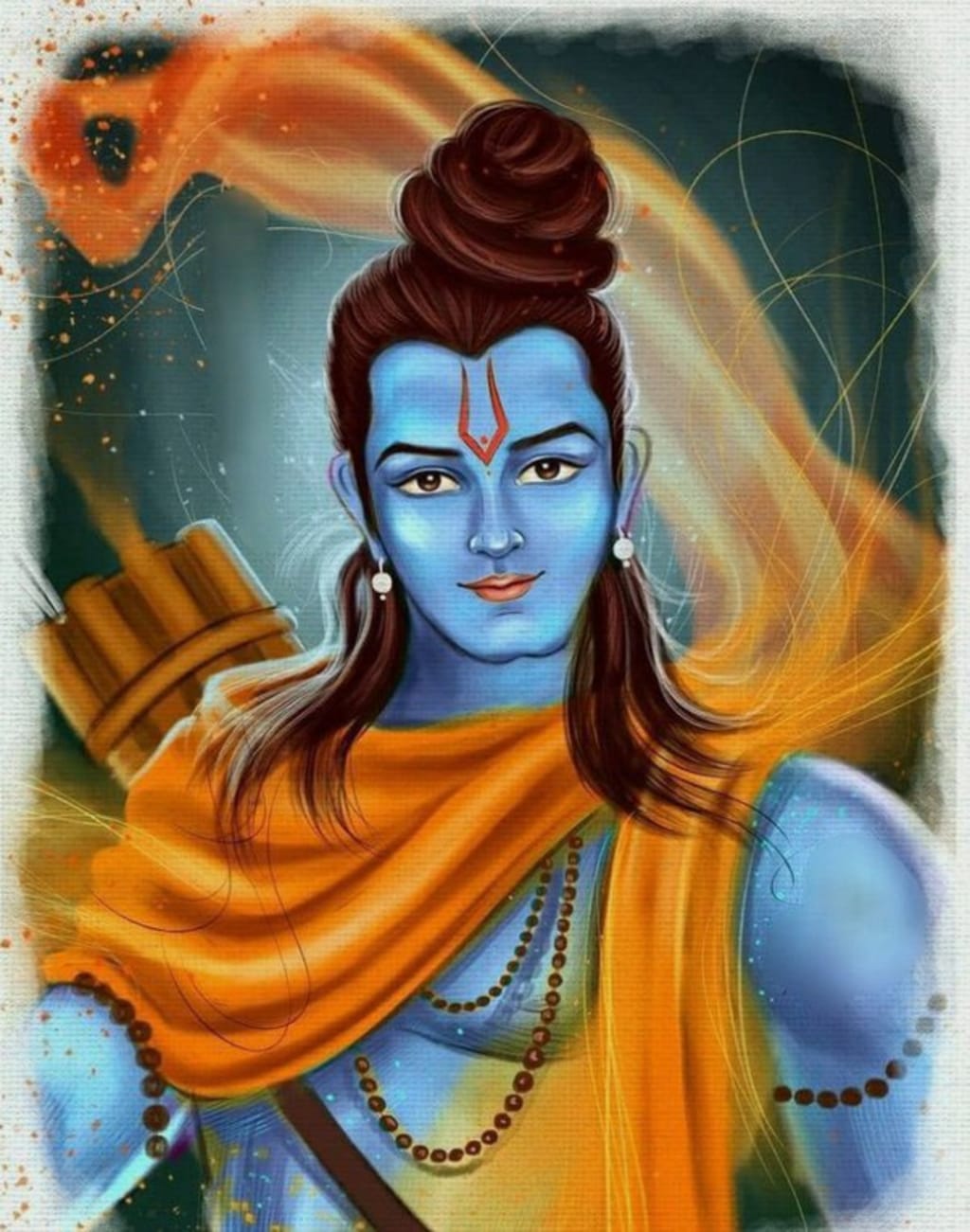
The Balakanda, the opening book of the Ramayana, serves as the genesis of the epic, laying the foundation for the divine destiny that would shape the lives of its principal characters. In the splendid city of Ayodhya, ruled by the illustrious King Dasharatha, celestial forces conspired to manifest themselves in the earthly realm, setting in motion a tale of virtue, sacrifice, and destiny.
The narrative commences with the celestial planning orchestrated by the gods. Recognizing the rise of an impending evil force in the form of the demon king Ravana, they decide to incarnate themselves as mortal beings. Queen Kaushalya, a virtuous queen of Ayodhya, becomes the vessel for the divine incarnation known as Rama. Simultaneously, Queen Kaikeyi gives birth to Bharata, Queen Sumitra to the twins Lakshmana and Shatrughna. These births mark the commencement of a grand cosmic drama.
Rama, the embodiment of righteousness and virtue, exhibits extraordinary qualities even in his childhood. His precocious wisdom and unparalleled bowmanship captivate the hearts of the citizens of Ayodhya and earn him the admiration of sages. The young prince's innate goodness and charm create an aura of divinity around him, foreshadowing the pivotal role he is destined to play.
As the narrative unfolds, Sage Vishwamitra seeks Rama's assistance in safeguarding his sacrificial ritual from the disruptive forces of demonic entities. Rama, undeterred and valiant, accompanies the sage, thus embarking on his first encounter with the forces of darkness. This event foreshadows the epic battles that Rama will face in the future, symbolizing the eternal struggle between good and evil.
The stage is set for a grand event in the divine narrative—the Swayamvara of Princess Sita of Mithila. The divine bow, known as the bow of Lord Shiva, is brought to Ayodhya, and a proclamation is made that only the worthy prince capable of stringing the bow would win Sita's hand in marriage. Rama, with calm confidence and divine prowess, effortlessly strings the bow, winning the admiration of the assembled sages, princes, and citizens.
The union of Rama and Sita is not merely a marriage; it is a celestial alliance that would play a pivotal role in the cosmic balance. The joyous occasion, however, takes an unexpected turn as Queen Kaikeyi, influenced by her scheming maid Manthara, demands her long-awaited boons from King Dasharatha. Her demands result in a decree that shatters the happiness of Ayodhya—the banishment of Rama to the forest for fourteen years and the coronation of Bharata in his stead.
King Dasharatha, torn between his love for Rama and his commitment to honor the boons granted to Kaikeyi, faces an excruciating dilemma. The grief-stricken departure of Rama, accompanied by his devoted wife Sita and loyal brother Lakshmana, leaves Ayodhya in a state of desolation. The citizens are heartbroken, and the city, once vibrant with celebration, is now subdued with sorrow.
The unfolding events in the Balakanda set the stage for the subsequent books of the Ramayana. Rama's acceptance of his exile with unwavering nobility exemplifies the principles of dharma, righteousness, and duty. Sita's steadfast resolve to accompany her husband into the forest, despite the comforts of the royal palace, underscores the strength of marital commitment and devotion.
As Rama, Sita, and Lakshmana venture into the wilderness, they encounter sages, mystical beings, and challenges that test their character and resilience. The Balakanda not only establishes the central characters of the epic but also introduces the overarching themes of destiny, sacrifice, and the eternal battle between good and evil.
In the aftermath of Rama's departure, Bharata returns to Ayodhya from his visit to his maternal grandfather and learns of the tragic events that have transpired. Shocked and grief-stricken, Bharata refuses to accept the throne that rightfully belongs to Rama. Instead, he vows to bring Rama back and rule Ayodhya in his name. Bharata's unwavering love for his elder brother sets the stage for the subsequent books, creating a narrative tension that will drive the epic forward.
The Balakanda, with its rich tapestry of celestial planning, virtuous characters, and tragic events, sets the tone for the larger-than-life saga that is the Ramayana. It serves as a prologue to the divine drama that will unfold across the pages of the epic, guiding the destinies of its characters toward their fateful encounters and ultimately towards the triumph of dharma.
About the Creator
HEY DUDE
In this page I am giving works related to story and essay history and I request you to support me.






Comments
There are no comments for this story
Be the first to respond and start the conversation.